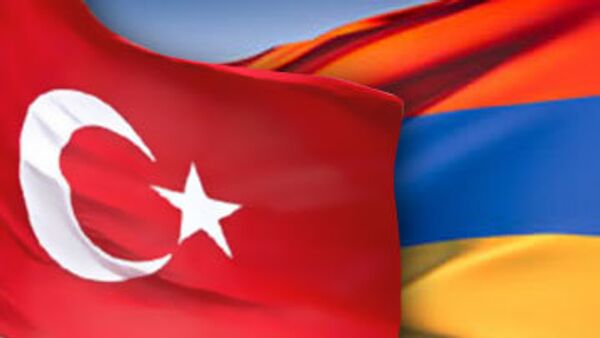Armenia and Russia denied a stalemate in talks on the Soviet-era Nagorny Karabakh dispute with Azerbaijan on Thursday.
Tensions remain high between Armenia and Azerbaijan, with both Caucasus states continuing the exchange of allegations of ceasefire violations over the disputed region, and Azerbaijan threatening to use force if talks yield no results.
Speaking after a meeting with his Armenian counterpart in Yerevan, Russian Foreign Minister Sergei Lavrov said "the talks are not in a stalemate."
Echoing him, Edvard Nalbandyan said: "I do not think there is a stalemate."
Nalbandyan said the settlement is under way as Armenia and Azerbaijan held nine high-level meetings on the problem last year alone.
Mediators in the conflict - the U.S., Russia and France that comprise the OSCE Minsk Group - reported some important progress in talks between the Azerbaijani and Armenian leaders in Munich late last year, but said difficulties remain.
It was the first meeting of the two countries' leaders after Armenia and Turkey, Azerbaijan's Muslim ally, signed historic accords in October to restore diplomatic ties and reopen their borders.
Turkey closed its border with Armenia in a show of support for Azerbaijan following a bloody conflict over Karabakh, in which some 35,000 died on both sides. The largely ethnic Armenian Nagorny Karabakh in Azerbaijani territory has remained in Armenian control.
Nalbandyan pledged efforts on Thursday to have the diplomatic accords with Turkey ratified by the Armenian parliament as soon as possible.
Some politicians in Turkey have linked improvement in ties with Armenia to progress in the Karabakh negotiations. Ankara also insists Yerevan drop its campaign to have the mass killings of Armenians by Ottoman Turks in 1915 internationally recognized as genocide.
Lavrov reiterated Russia's resolve to help Armenia and Turkey improve relations. "Russia has reaffirmed its support for the process; we are interested in the improvement of their relations which would benefit the whole world."
The meeting took place after Turkish Prime Minister Tayyip Erdogan visited Moscow on Tuesday and Wednesday, when the sides reaffirmed their backing for joint ambitious energy projects.
YEREVAN, January 14 (RIA Novosti)




